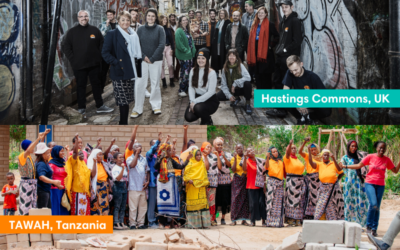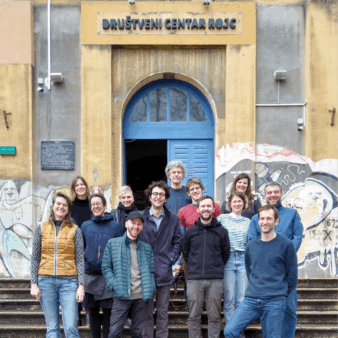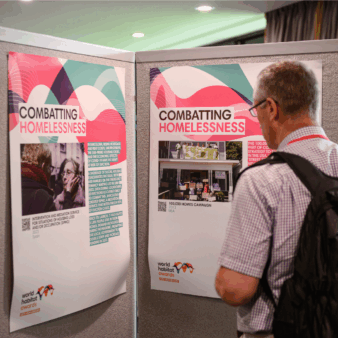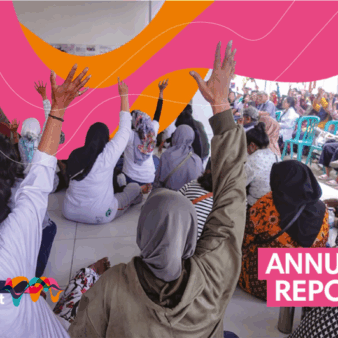
Nine diverse housing initiatives from around the globe have been honoured with World Habitat Awards, presented annually in partnership with UN-Habitat. The winning projects offer proven solutions for housing affordability, ending homelessness, decarbonising housing and increasing climate resilience, and improving gender equity and social inclusion, and all show real potential for transfer and scaling.
Entries for the Awards were received from 55 countries, with the winners selected after an in-depth selection process by international housing experts lasting nearly nine months. The two gold winners each receive a prize of £10,000 (GBP), and access to innovation funding and expertise from World Habitat. All winners join the World Habitat Network, consisting of hundreds of previous winners spanning almost four decades.
The 2025 Gold Award winners are:
- Tanzania Women Architects for Humanity (TAWAH) for Mhaga Homes for the Elderly, Tanzania: A comprehensive training programme that empowers women with construction skills to build eco-friendly and dignified homes for the elderly in rural communities. The project promotes gender equity, poverty reduction and low carbon construction and protects vulnerable senior citizens from unsafe housing.
- Hastings Commons, UK: A community-led initiative, including a Community Land Trust, that allows residents of an low-income neighbourhood to own, transform and manage derelict buildings, turning them into secure, sustainable and affordable homes, workspaces, and social hubs for all. The enterprise combats the financialisation of housing, increasing affordability and availability whilst empowering the local community.
The Silver Award winners are:
- The Occupants’ and Tenants’ Movement (MOI) for La Fábrica, Argentina: A housing cooperative in Buenos Aires that provides 55 affordable, safe and attractive homes to those on the lowest incomes. This project is a leading example of repurposing a disused building, and empowers women and young people through active and on-going participation.
- STOPA for Innovative Approaches to End Homelessness, Slovakia: A project providing permanent housing and comprehensive support services to individuals with complex needs experiencing homelessness, through Housing First and housing-led approaches. Using international leading practice and adapting it to Slovakia, this project challenges stigma, promotes holistic recovery of the most vulnerable.
The Bronze Award winners are:
- Amidoul Foundation for Tafilelt Tajdit Village, Algeria: Creates socially inclusive and climate-friendly housing in the Algerian Sahara. This development exemplifies how to build for the increasingly harsh desert landscape, incorporating traditional architectural elements for climate-resilience and sustainability.
- Australian Alliance to End Homelessness for Advance to Zero (AtoZ), Australia: A data-driven and evidence-based programme that helps local services incrementally reduce homelessness, with a focus on people experiencing rough sleeping, First Nations people and people aged 55 years and over. This programme demonstrates the adaptation of a proven framework for ending homelessness with measurable reductions in just four years.
- einszueins architektur, for Cohousing for the Future, Austria: Develops modern, beautiful and affordable urban and rural cohousing projects that prioritise resident participation, low-carbon construction, and social inclusion. These cohousing projects exemplify low-carbon participatory design that combats financialisation and housing exclusion.
- The Salvadoran Foundation for Development and Minimum Housing (FUNDASAL) for Rural Capacity Building, El Salvador: Supports organised self-production of housing by providing training, materials and support to marginalised rural communties. This programme empowers residents to build and upgrade their homes, improve living conditions and food security, and enhance resilience to climate disasters.
- The Heritage Foundation of Pakistan (HFP), for Holistic Eco-Villages for Flood Rehabilitation, Pakistan: Trains communities to build low-cost homes that are flood-resistant, using local renewable materials and traditional techniques. This programme increases gender equity, poverty reduction, climate resilience and independence from foreign aid.
David Ireland, CEO of World Habitat said:
The latest UN-Habitat estimates tell us that 2.8 billion people are homeless or living in inadequate housing. To have a hope of reversing this we need inspiring examples that illustrate how it is possible for people on low incomes to be well housed. Entries for the World Habitat Awards from across the world do just that. These nine award winners provide both hope and practical solutions that show us a better world is possible.




Join the discussion